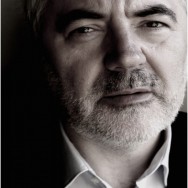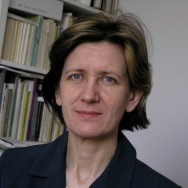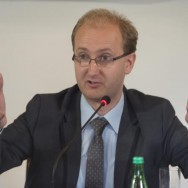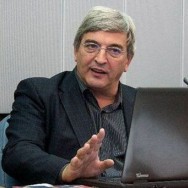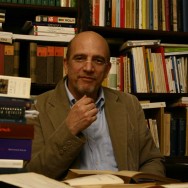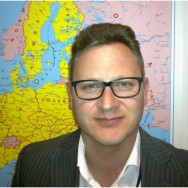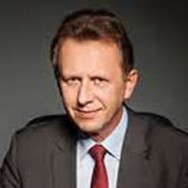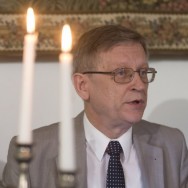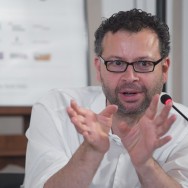Professor of Sociology at the Jagiellonian University. Author of many publications, amongst them The Theory of Social Peculiarities. He specializes in sociology of finance including such particular areas as the social meaning of money, cash and cashless settlements, evolution of the world financial system in the 21th century, financial markets and financial crisis. In his research, he applies a sociological perspective in order to study the role of individuals in the world of finance. At the same time, he works for The National Bank of Poland as the Director of the NBP Regional Branch in Krakow.
Experts
Jadwiga Hučková
Assistant Professor at the Institute of Audiovisual Arts of the Jagiellonian University of Krakow. Expert in the documentary film of Central Europe and Czech and Slovak cinema. Graduated from Jagiellonian University with degrees in history of art, filmology and journalism. Her PhD thesis (1995) analysed the Polish documentary in the 1980’s in its political, historical, literary and sociological context. Has published in a.o. Kino, Kwartalnik Filmowy, Studia Filmoznawcze, Universitas, Tygodnik Powszechny, Kultura Popularna, Kinowedczeskije zapiski. Has published (under the name Jadwiga Głowa) books: “Zooming in on History’s Turning Points. Documentaries in the 1990s in central and Eastern Europe. Papers from an international seminar held on May 29, 1999. Jagiellonian University Cracow”, „Dokument filmowy epoki Havla” (“Film Documentary in Times of Havel”), which examines Czech documentaries made after 1989 during the time of intensive political and economical changes. Member of the Programme Council and the Selection Committee of Krakow Film Festival (former International Short Film Festival). Member of the juries at the international film festivals in Denmark, The Czech Republic, Slovakia, Poland, Germany, Finland, Sweden, Yugoslavia, Iran, Israel, Italy. Has organized the international film festival “Human dignity, Tolerance and the Holocaust as seen through the medium of the documentary film” (Swedish International Culture Forum, Stockholm 1999). Head of Program and the coordinator of the festivals about human dignity and tolerance in Stockholm (2001, 2003). Has take a part in the international project Visegrad Documentary Film Library - Prague 2002/2003. An expert at the Polish Film Institute.
Tomáš Kašaj
Dr Tomáš Kašaj is Consul General of Slovak Republic in Krakow. He studied at Matej Bel University in Banská Bystrica (2002-2007), worked in Ministry of Foreign Affairs of the Slovak Republic and since 2008 till 2011 was a specialist in the Diplomatic Protocol. Since 2011 to 2015, he was a Consul and Deputy Consul General of Slovak Republic in Krakow. He is fluent in English and Polish and beginner in Hungarian. He likes sport, cinema and music.
Marcin Kędzierski
Research and teaching assistant at the Department of European Studies of the Cracow University of Economics. He graduated from the Cracow University of Economics in International Relations and European Studies (MA) and in Economy and Public Administration (PhD). He completed internships at the Polish Embassy in Germany, European Parliament in Brussels and Ministry of Foreign Affairs of the Republic of Poland. He runs one of the oldest NGO in Poland, the Jagiellonian Club, which operates i.a. in the field of Visegrad region cooperation (he is personally responsible for the new internet portal aimed at Visegrad+ politics and economy). He covers Polish internal and foreign policy, the European integration processes, EU institutions and EU sector policies with special focus on economic and foreign policy issues.
Alexander Kiossev
Professor in History of Modern Culture and Director of Cultural Center of the University of Sofia. His research interests are in the spheres of reading research, cultural history of communist totalitarianism, post-colonial studies and construction of identities. He published a book on the history of Bulgarian literature and another two on cultural history of the transition period in Eastern Europe; recently he published the monograph “The Quarrels about Reading” (2013,Sofia: Ciela, in Bulgarian). He was editor of the collective volume “Post-Theory, Games and Discursive Resistance”, and the collective volume “Rules” and“Roles”. Fluid Institutions, Hybrid Roles and Identities in East European Transformation Processes (1989–2005).Many of his essays are translated in English, German, French, Dutch, Ukrainian, Czech, Polish, Romanian, Serbian and Macedonian languages. Since 2000 he has been a leader of several international research projects dedicated to the Balkan cultures, reading problems and autobiographies.
Michel Henri Kowalewicz
Historian of ideas and philosophy, initiator and co-editor of the book series in mentis Verlag Münster: Vestigia idearum historica. Beiträge zur ideengeschichte Europas (one of the tangible effects of the project of the National Program for the Development of Humanities of the Polish Ministry of Science and Higher Education); coordinator of international and interdisciplinary research network History of Ideas Research Network and director of the History of Ideas Research Centre, an independent research unit at the Faculty of Philosophy of the Jagiellonian University, based in Villa Decius in Krakow.
Jacek Krupa
Marshall of Małopolska Region since 2015. He is a Politician and economist. He studied at the Faculty of Management and Marketing at the Economic Academy in Krakow. In 1981, he was a member of Solidarity – he chaired the factory commission in Nowa Huta. During his political career he was a Mayor of the city of Skawina (1990-1998), Deputy chief of the Krakow country, Chief of the Krakow country (2002-2005) and Member of Polish Parliament (2005-2011). Since November of 2011, he was deputy chairman of Krakow Technology Park (KTP).
Zbigniew Krużyński
Graduated from the University of Economic Sciences in Budapest, he studied for a doctorate at the Institute of World Economy in Budapest and obtained his Ph.D. in the field of international integration processes from the Hungarian Academy of Sciences. Since 1979 has held various posts at Polish Ministry of Foreign Affairs, including diplomatic posts in Berlin and Budapest. Has been the Polish National Coordinator for Visegrad Cooperation since 2010. He specializes in regional and transfrontier cooperation.
Kai-Olaf Lang
Research fellow at the German Institute for International and Security Affairs of the Stiftung Wissenschaft und Politik (SWP), Berlin, Germany. Head of research unit on European Integration; previously research fellow of the Federal Institute for Eastern and International Studies (Bundesinstitut für internationale und ostwissenschaftliche Studien, BIOst), Cologne, Germany. His fields of specialization include Countries of Central and Eastern Europe: transformation, political developments, foreign and security policy, bilateral relations with Germany; EU enlargement and implications; security issues in CEE. In recent years he has carried out research concerning foreign and security policies of those countries, problems regarding accession of CEE countries to EU and domestic problems of the countries; European Neighborhood Policy. He holds a diploma in public administration and a doctorate in political sciences. Member of Deutsche Gesellschaft für Osteuropakunde; Member of German-Polish Kopernikus-Group; Member of Editorial Board of Przegląd Zachodni (Poznan), Advisory Board of Aspen Review Central Europe (Prague). He holds a Bene Merito award by Polish Foreign Minister Sikorski.

